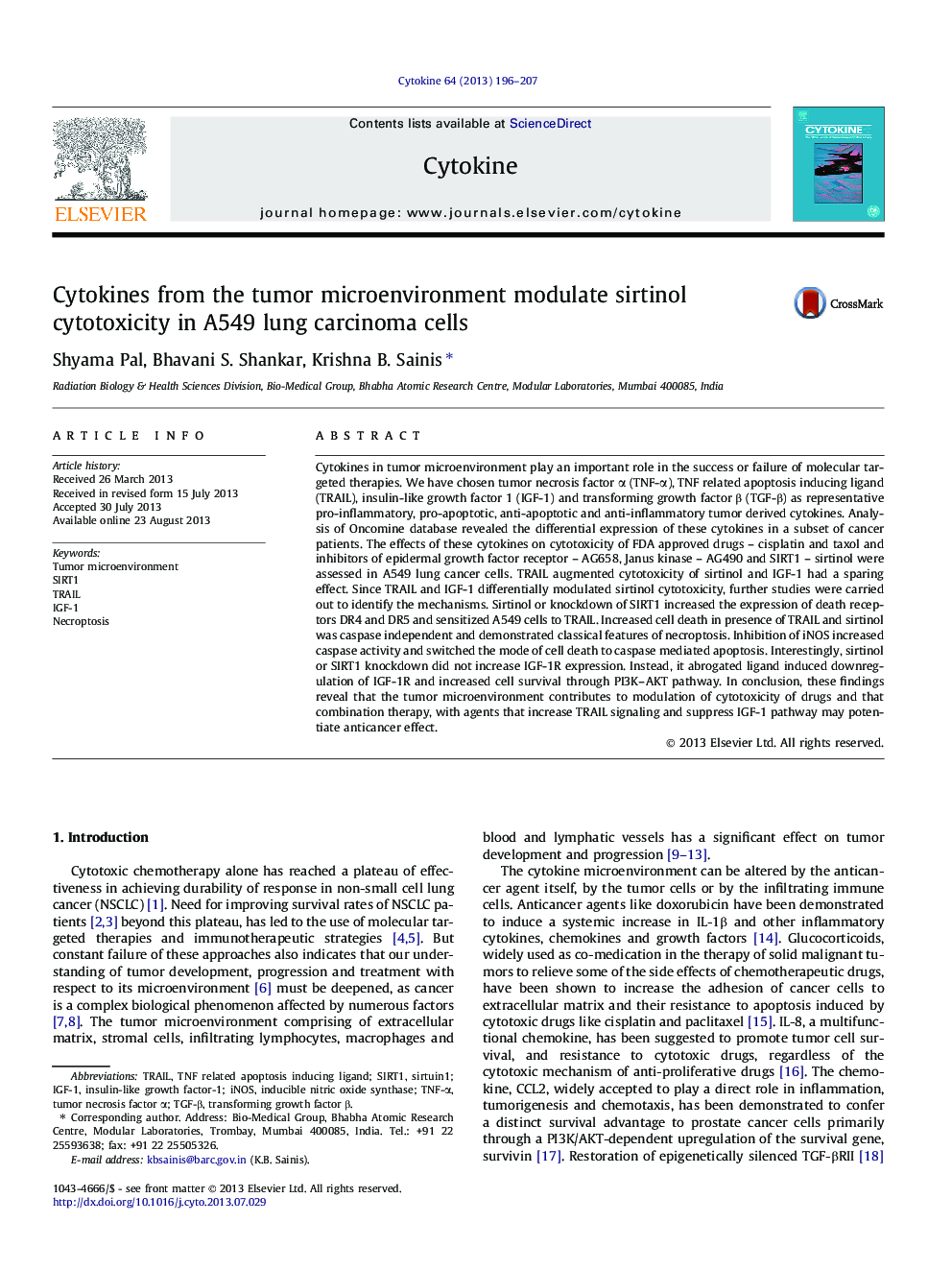| کد مقاله | کد نشریه | سال انتشار | مقاله انگلیسی | نسخه تمام متن |
|---|---|---|---|---|
| 5897756 | 1155276 | 2013 | 12 صفحه PDF | دانلود رایگان |

- Cytokines play an important role in determining efficacy of cytotoxic drugs.
- TRAIL augmented and IGF-1 spared cytotoxicity of sirtinol, a SIRT1 inhibitor.
- Increased toxicity - up regulation of death receptors DR4, DR5.
- Inhibition of iNOS switched mode of cell death from necroptosis to apoptosis.
- Increased survival - inhibition of IGF-1 induced down regulation of IGF-1R.
Cytokines in tumor microenvironment play an important role in the success or failure of molecular targeted therapies. We have chosen tumor necrosis factor α (TNF-α), TNF related apoptosis inducing ligand (TRAIL), insulin-like growth factor 1 (IGF-1) and transforming growth factor β (TGF-β) as representative pro-inflammatory, pro-apoptotic, anti-apoptotic and anti-inflammatory tumor derived cytokines. Analysis of Oncomine database revealed the differential expression of these cytokines in a subset of cancer patients. The effects of these cytokines on cytotoxicity of FDA approved drugs - cisplatin and taxol and inhibitors of epidermal growth factor receptor - AG658, Janus kinase - AG490 and SIRT1 - sirtinol were assessed in A549 lung cancer cells. TRAIL augmented cytotoxicity of sirtinol and IGF-1 had a sparing effect. Since TRAIL and IGF-1 differentially modulated sirtinol cytotoxicity, further studies were carried out to identify the mechanisms. Sirtinol or knockdown of SIRT1 increased the expression of death receptors DR4 and DR5 and sensitized A549 cells to TRAIL. Increased cell death in presence of TRAIL and sirtinol was caspase independent and demonstrated classical features of necroptosis. Inhibition of iNOS increased caspase activity and switched the mode of cell death to caspase mediated apoptosis. Interestingly, sirtinol or SIRT1 knockdown did not increase IGF-1R expression. Instead, it abrogated ligand induced downregulation of IGF-1R and increased cell survival through PI3K-AKT pathway. In conclusion, these findings reveal that the tumor microenvironment contributes to modulation of cytotoxicity of drugs and that combination therapy, with agents that increase TRAIL signaling and suppress IGF-1 pathway may potentiate anticancer effect.
Journal: Cytokine - Volume 64, Issue 1, October 2013, Pages 196-207